
"I Don't See Me in Your Eyes Anymore" is a popular song, written by Bennie Benjamin and George David Weiss and published in 1949. The song was popularized that year by Gordon Jenkins and His Orchestra and by Perry Como.
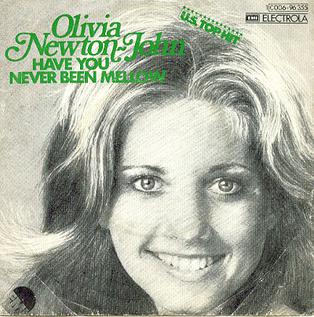
"Have You Never Been Mellow" is a song recorded by British-Australian singer Olivia Newton-John for her 1975 fifth studio album of the same name. Written and produced by John Farrar, the song was released as the lead single from the album in January 1975.
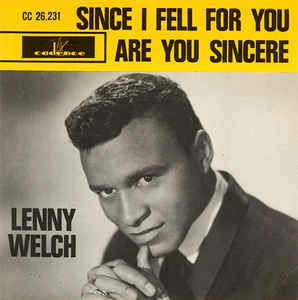
"Since I Fell for You" is a blues ballad composed by Buddy Johnson in 1945 that was first popularized by his sister, Ella Johnson, with Buddy Johnson and His Orchestra.
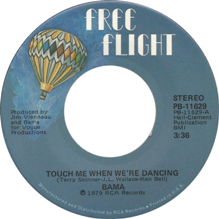
"Touch Me When We're Dancing" is a song written by Terry Skinner, J. L. Wallace and Ken Bell. Skinner and Wallace headed the Muscle Shoals, Alabama session group Bama, who first recorded this song and released it as a single in 1979 reaching number 42 on the Billboard Easy Listening chart and number 86 on the Billboard Hot 100 chart. The song was later recorded by The Carpenters in 1981 for their Made in America album. In 1984, it was recorded by country music artists Mickey Gilley and Charly McClain for their 1984 duet album It Takes Believers and in 1986 by the country music group Alabama.
The discography for Canadian country-pop singer Anne Murray includes 32 studio albums, 15 compilation albums and 76 singles. Murray has sold over 55 million records across the world, becoming one of the best-selling Canadian artists in history. She has scored 10 number one hits on Hot Country Songs and 8 number one hits on Adult Contemporary Chart.

"Rollin' with the Flow" is a song first released by American country music artist T.G. Sheppard, in 1974 on the B-side of a single and in 1975 on his debut album T.G. Sheppard. It is better known for a version released by Charlie Rich in 1977. The Rich single was his eighth Number One on the U.S. Billboard Hot Country Singles charts. "Rollin' with the Flow" also crossed over into the top-40 of the adult contemporary music charts and narrowly missed the Billboard Hot 100, peaking at number 101 on the Bubbling Under the Hot 100 chart. The song returned to the country music charts in 2008, with a version by Mark Chesnutt reaching number 25 on the Billboard Hot Country Songs chart.
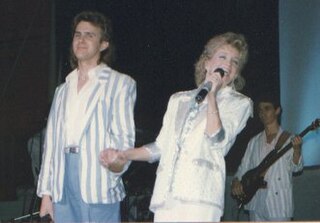
The singles discography of American country music artist Barbara Mandrell contains 54 singles as a lead artists, seven singles as a collaborative artist, six promotional singles and one music video. In 1966, Mandrell's debut single was released titled "Queen for a Day". She then signed a recording contract and in 1969 had her first charting release with a cover of "I've Been Loving You Too Long ". In the early 1970s, Mandrell had a series of top 20 charting singles on America's Billboard country songs chart. This included "Playin' Around with Love" (1970), "Treat Him Right" (1971) and "Show Me" (1972). She collaborated with David Houston on several singles as well. Their most successful was 1970's "After Closing Time", which became Mandrell's first top ten hit on the Billboard country chart. During this period she also reached the top ten with "Tonight My Baby's Coming Home" (1971) and "The Midnight Oil" (1973). In 1975, Mandrell signed to ABC Records and had a top five country hit with "Standing Room Only".
"Shadows in the Moonlight" is a song written by Charlie Black and Rory Bourke, and recorded by Canadian country pop music singer Anne Murray. It was released in May 1979 as the second single from the album New Kind of Feeling. The song reached No. 1 on the Billboard Hot Country Singles chart that July, and was one of three chart-toppers for her during the year. "Shadows in the Moonlight" was Murray's third No. 1 single on the country chart and fourth overall.

"Back Home Again" is a popular song written and performed by the American singer-songwriter John Denver. "Back Home Again" was released as a single from his album of the same name in 1974.
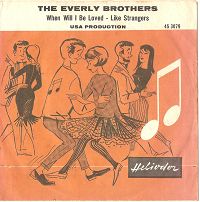
"When Will I Be Loved" is a popular song written by Phil Everly of the Everly Brothers, who had a US top-ten hit with it in 1960. Linda Ronstadt covered the song in 1975, and her version was an even bigger hit in the US, peaking at No. 2. Vince Gill also covered it in 1994 on the soundtrack of the film 8 Seconds.
"Share Your Love with Me" is a song written by Alfred Braggs and Deadric Malone. It was originally recorded by blues singer Bobby "Blue" Bland. Over the years, the song has been covered by various artists, most notably Aretha Franklin who won a Grammy Award for her 1969 rendition. Other artists who covered the song include The Band in 1973, Kenny Rogers in 1981, and most recently, Van Morrison in 2016.

"A Very Special Love Song" is the title of a 1974 song by country music singer Charlie Rich. The song was written by Billy Sherrill and Norro Wilson, songwriters who had also written Rich's 1973 hit, "The Most Beautiful Girl". The song is included on Rich's 1974 album, Very Special Love Songs.
"I Love My Friend" is a 1974 single written by Billy Sherrill and Norro Wilson and recorded by Charlie Rich. "I Love My Friend" was Rich's sixth number one on the country chart. The single remained at number one for one week and spent a total of ten weeks on the chart. "I Love My Friend" peaked at number 24 on the Billboard Hot 100 and reached number one on the Easy Listening chart.
"Touch a Hand, Make a Friend" is a song written by Homer Banks, Raymond Jackson and Carl Hampton, and first recorded by The Staple Singers for their album Be What You Are. It was one of The Staple Singers most successful singles and peaked at number three on the Billboard Hot Soul Singles chart and number 23 on its Hot 100 chart in 1973. The single also reached number 27 on the Billboard Adult Contemporary chart.
"The Tip of My Fingers", also titled "The Tips of My Fingers", is a song written and originally recorded by American country music singer Bill Anderson. First included on his 1962 album Bill Anderson Sings Country Heart Songs, the song was a Top Ten country single for him in 1960.
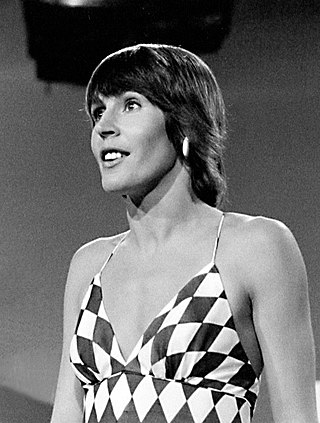
Australian-American singer Helen Reddy (1941–2020), often referred to as the "Queen of 70s Pop", recorded 18 studio albums, seven of which have achieved sales of 500,000 units in the US for which they were awarded Gold certification by the Recording Industry Association of America. One of those seven, I Am Woman, eventually went Platinum by reaching sales of one million copies, and her first compilation album, Helen Reddy's Greatest Hits, was awarded Double Platinum status in 1992 for hitting the two million sales mark. The respective US and Canadian album charts in Billboard and RPM magazine each had appearances by 10 of these LPs during the 1970s.
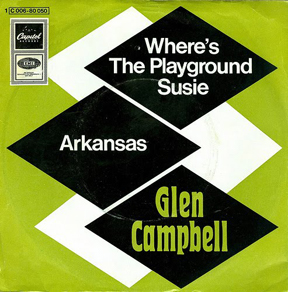
"Where's the Playground Susie" is a song written by Jimmy Webb and recorded by American country music singer Glen Campbell. It was released in April 1969 as the second single from the album Galveston. The song peaked at number 26 on the Hot 100, number 28 on the U.S. Billboard Hot Country Singles chart, and number 8 on the Canadian RPM Top Singles chart.
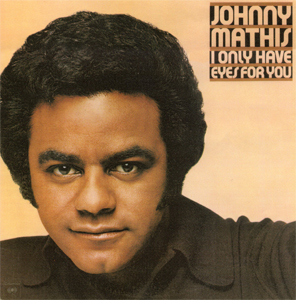
I Only Have Eyes for You is an album by American pop singer Johnny Mathis that was released on May 10, 1976, by Columbia Records and included two new songs, "Yellow Roses on Her Gown" and "Ooh What We Do", which was written specifically for him, as well as a contemporary arrangement of the 1934 title track that foreshadowed his recordings of standards that incorporated a disco beat a few years later.

"Don't Throw It All Away" is a song written by British musician Gary Benson and first released by the Shadows on their 1975 album Specs Appeal. Benson released his version as a single later the same year, which reached number 20 on the UK Singles Chart in the fall of 1975.

The singles discography of American country musician Tammy Wynette contains 65 singles, 6 music videos, 3 promotional singles and 2 featured singles. Wynette signed with Epic Records in 1966 and her debut single "Apartment No. 9" was released the same year. Her single "Your Good Girl's Gonna Go Bad" (1967) became a major hit, reaching number 3 on the Billboard Hot Country Singles chart. Its follow-up singles: "My Elusive Dreams", "I Don't Wanna Play House", "Take Me to Your World" and "D-I-V-O-R-C-E", became number 1 hits on the Hot Country Singles chart.














